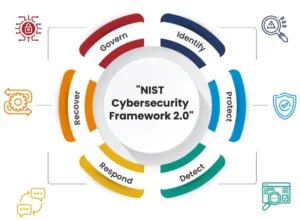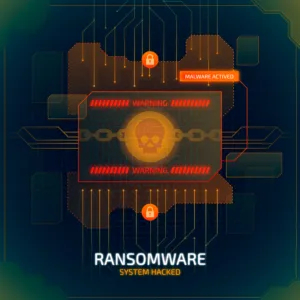
Table of Contents
Introduction
In recent years, the proliferation of sophisticated spyware designed by private firms has emerged as a significant threat to personal privacy and security. The deployment of mercenary spyware, often wielded by malicious actors for diverse motives, has raised alarms among tech experts and privacy advocates. One platform especially targeted by such espionage tools is the iPhone, renowned for its stringent security measures.
This article delves into the ominous realm of mercenary spyware attacks, explores how they infiltrate iPhones, and offers actionable remedial measures for safeguarding personal data.
Understanding Mercenary Spyware
Mercenary spyware refers to surveillance tools crafted by private entities, including security firms and cyber mercenaries, with the intent to monitor and collect sensitive information from targeted individuals or organizations. Unlike conventional malware, these spyware solutions are often meticulously engineered to circumvent robust security measures and remain undetected by sophisticated devices like iPhones.
Methods of iPhone Targeting
1. Exploiting Vulnerabilities:
Mercenary spyware leverages undisclosed vulnerabilities, often referred to as “zero-day exploits” in iOS, the operating system powering iPhones. These vulnerabilities enable the spyware to infiltrate the device without the user’s knowledge.
2. Phishing Attacks:
Another common approach involves phishing techniques where users are tricked into installing seemingly harmless applications or clicking on malicious links, which subsequently install the spyware on the iPhone.
3. Network Interception:
Sophisticated spyware can intercept data transmitted over networks, allowing attackers to access sensitive information such as messages, emails, and browsing history.
Signs of a Compromised iPhone
Identifying if an iPhone has been compromised by mercenary spyware can be challenging due to its clandestine nature. However, some indicators may include:
1. Unusual Battery Drain: Spyware often runs in the background, consuming significant device resources and leading to noticeable battery depletion.
2. Unexplained Data Usage: Spyware may transmit data to remote servers, resulting in unexpected spikes in data usage.
3. Unusual Behavior: Strange glitches, frequent crashes, or unexplained pop-ups could signify spyware activity.
Notification of Active Spyware Attacks
If targeted, you will get an email & iMessage notification at registered number associated with Apple ID.

Remedial Measures
Given the insidious nature of mercenary spyware, it is crucial to adopt proactive measures to mitigate the risks associated with such threats.
1. Regular Software Updates: Ensure the iPhone’s operating system and applications are updated regularly. Updates often include security patches that address known vulnerabilities exploited by spyware.
2. Avoid Jailbreaking: Jailbreaking compromises the security of the iPhone, making it more susceptible to spyware attacks. Refrain from jailbreaking your device.
3. Install Security Software: Consider using reputable security software specifically designed to detect and thwart spyware. These applications can provide an additional layer of protection against malicious attacks.
4. Exercise Caution with Links and Downloads: Be wary of unsolicited links, attachments, or applications, especially from unknown sources. Verify the authenticity of sources before downloading or installing anything on your iPhone.
5. Enable Two-Factor Authentication (2FA): Implementing 2FA adds an extra layer of security, making it more challenging for unauthorized users to gain access to your accounts, even if your iPhone is compromised.
6. Regularly Monitor Device Activity: Stay vigilant by monitoring your iPhone’s performance and activity. Investigate any unusual behavior promptly to mitigate potential threats.
Conclusion
Mercenary spyware attacks represent a formidable challenge to personal privacy and security, particularly for iPhone users. By understanding the methods used by such spyware, recognizing the signs of compromise, and adopting proactive remedial measures, individuals can significantly enhance their defenses against these insidious threats.
Safeguarding personal data and maintaining device integrity is imperative in an era dominated by digital espionage and cyber threats. By staying informed and proactive, iPhone users can fortify their digital defenses and navigate the evolving landscape of cyber threats with greater resilience and confidence.
FAQ’s
1. What is mercenary spyware, and how does it target iPhones?
Mercenary spyware refers to sophisticated surveillance tools developed by private entities to infiltrate and monitor targeted devices like iPhones. These spyware solutions often exploit undisclosed vulnerabilities in iOS (the iPhone’s operating system) or employ phishing techniques to trick users into installing malicious applications or clicking on harmful links.
2. How can I tell if my iPhone has been targeted by mercenary spyware?
Detecting mercenary spyware on an iPhone can be challenging due to its covert nature. However, signs of compromise may include unusual battery drain, unexplained data usage, unexpected pop-ups, or abnormal device behavior (e.g., crashes or slow performance). If you suspect spyware, consider using reputable security software to scan your device for malicious activity.
3. How can I protect my iPhone from mercenary spyware attacks?
To safeguard your iPhone against mercenary spyware:
– Keep your iOS and apps updated: Regularly update your iPhone’s operating system and applications to patch known vulnerabilities.
– Avoid jailbreaking your device: Jailbreaking compromises iPhone security, making it more vulnerable to spyware and other threats.
– Use reputable security software: Install and regularly update security applications designed to detect and remove spyware.
– Exercise caution with links and downloads: Avoid clicking on suspicious links or downloading apps from untrusted sources.
– Enable Two-Factor Authentication (2FA): Implement 2FA for added security, making it harder for unauthorized users to access your accounts.
– Monitor your device’s activity: Stay vigilant and investigate any unusual behavior or performance issues promptly.
4. Can mercenary spyware access encrypted data on my iPhone?
While mercenary spyware can be highly sophisticated, accessing encrypted data on iPhones (e.g., data protected by iCloud Keychain or encrypted apps) may still pose a significant challenge. However, spyware can intercept unencrypted data and access certain device information if it successfully infiltrates the iPhone.
5. What should I do if I suspect my iPhone has been compromised by spyware?
If you suspect your iPhone has been compromised by spyware:
– Disconnect from networks: Immediately disconnect your iPhone from Wi-Fi and cellular networks to prevent further data transmission.
– Backup important data: Back up critical data to a secure location.
– Scan with security software: Use reputable security software to scan and remove spyware from your device.
– Reset your iPhone: As a last resort, consider resetting your iPhone to factory settings to remove any persistent spyware.
6. Is it safe to use public Wi-Fi on my iPhone?
Using public Wi-Fi can expose your iPhone to various security risks, including spyware attacks. To mitigate these risks, avoid accessing sensitive information (e.g., online banking) over public Wi-Fi networks. Instead, use a virtual private network (VPN) to encrypt your internet connection and enhance security.
7. Can mercenary spyware be used to track my location through my iPhone?
Yes, mercenary spyware can track a device’s location if it successfully infiltrates the iPhone. To mitigate location tracking risks, ensure location services are disabled for unnecessary apps and review location permissions regularly.
Read more on https://cybertechworld.co.in for insightful cybersecurity related content.




















I do not even understand how I finished up here, however I thought this put up was once good. I do not understand who you might be however certainly you are going to a well-known blogger for those who aren’t already 😉 Cheers!
Hey there! I know this is somewhat off topic but I was wondering which blog platform are you using for this website? I’m getting tired of WordPress because I’ve had issues with hackers and I’m looking at alternatives for another platform. I would be great if you could point me in the direction of a good platform.
This website was… how do I say it? Relevant!! Finally I’ve found something which helped me. Appreciate it!